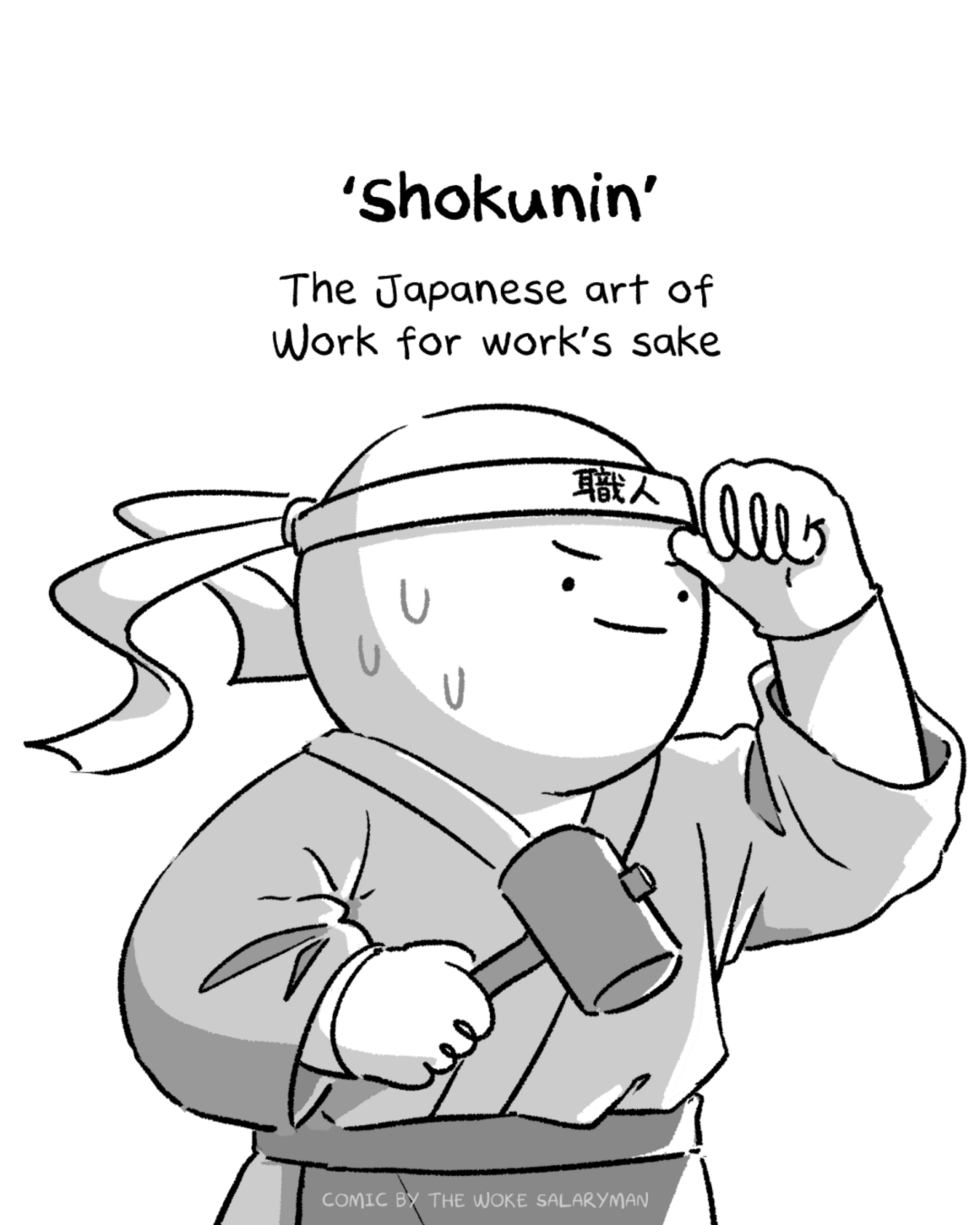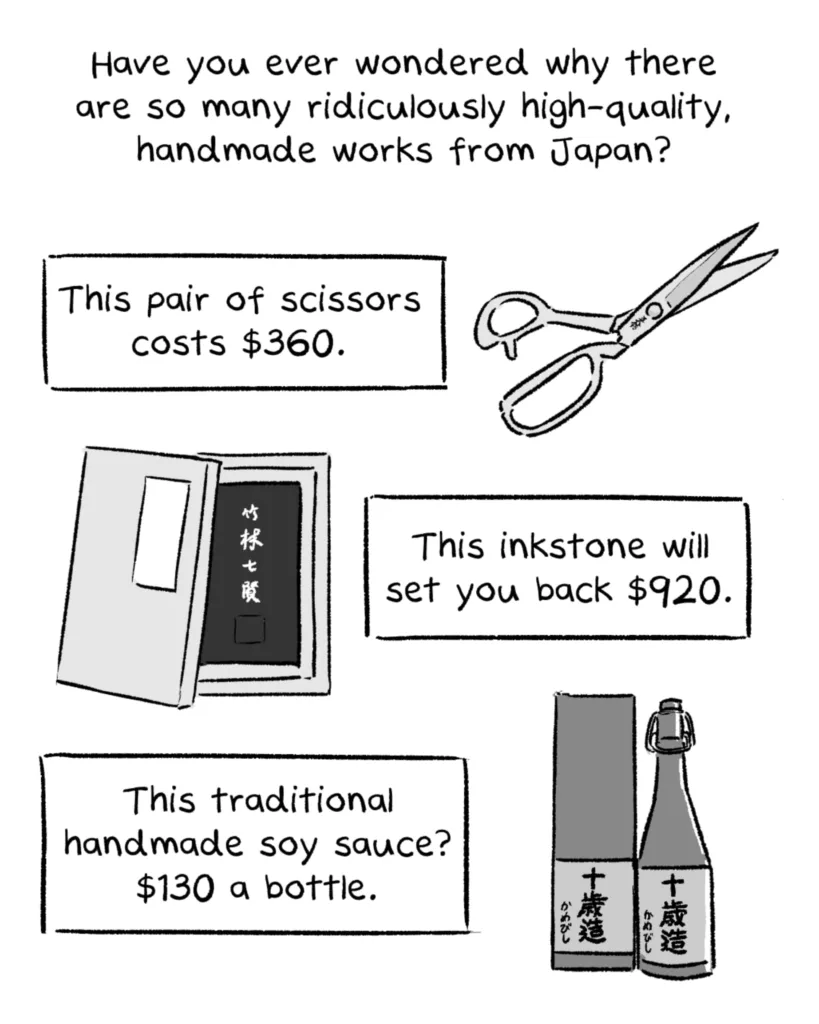
Have you ever wondered why there are so many high-quality, handmade works from Japan? This pair of scissors costs $360. This inkstone will set you back $920. This traditional handmade soy sauce? $130 a bottle.

These products have always confused me. Surely, in the age of globalization and international supply chains, the better model is mass manufacturing and making things that are just GOOD ENOUGH.
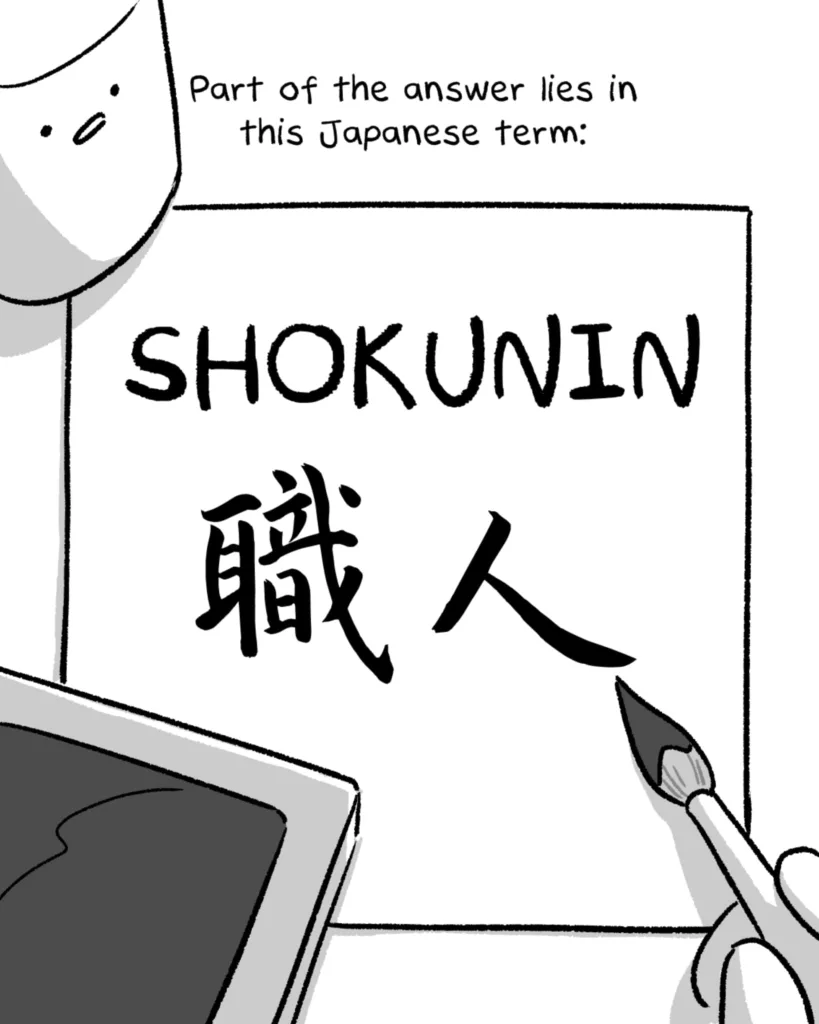
Part of the answer lies in this Japanese term:
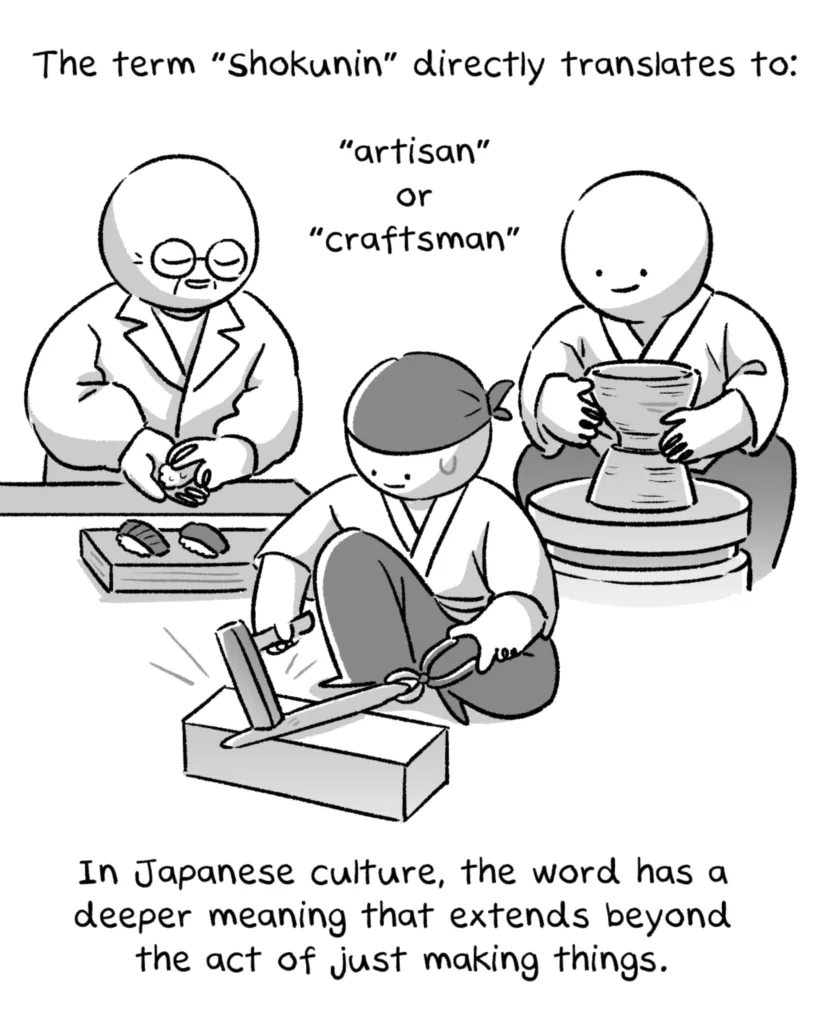
The term “Shokunin” directly translates to: “artisan” or “craftsman.” In Japanese culture, the word has a deeper meaning beyond just making things.
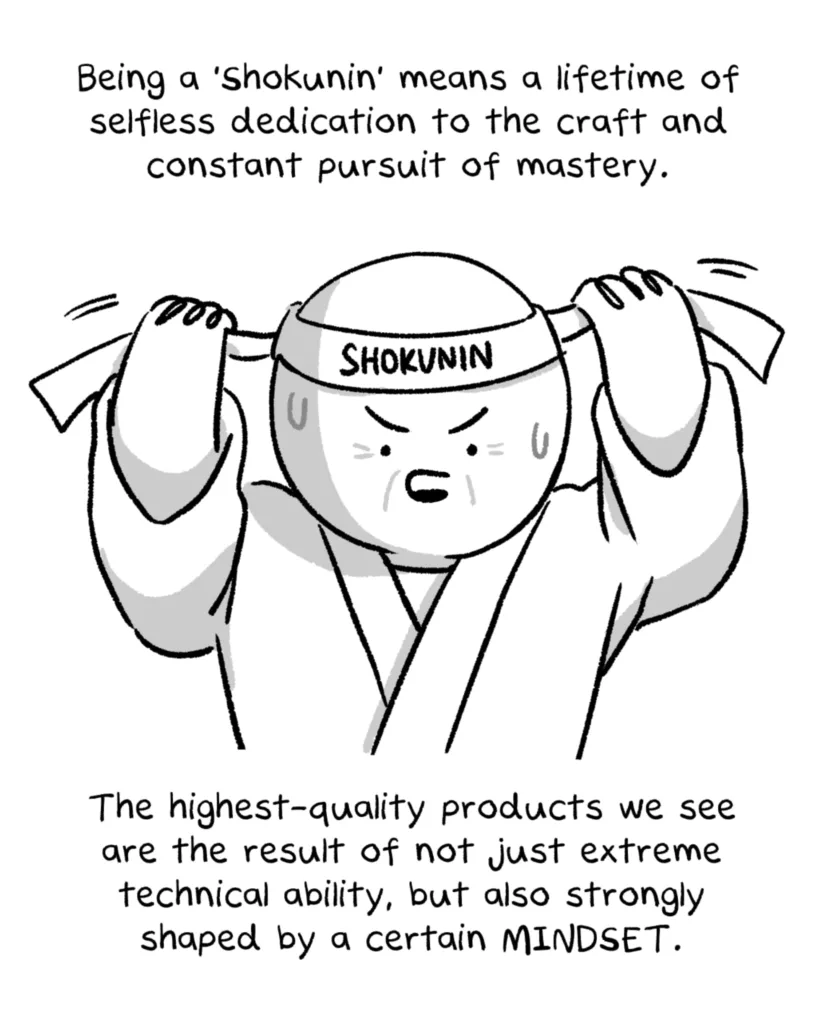
Being a ‘Shokunin’ means a lifetime of selfless dedication to the craft and constant pursuit of mastery. SHOKUNIN The highest-quality products we see result from not just extreme technical ability but also strongly shaped by a certain MINDSET.
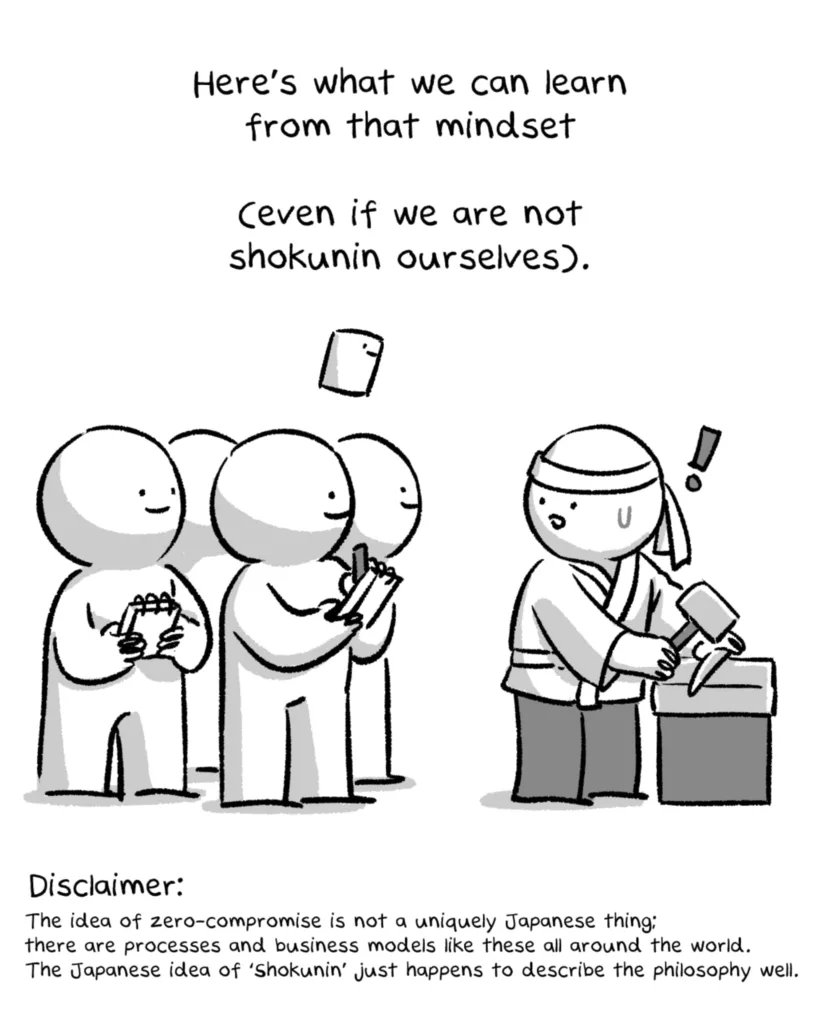
Here’s what we can learn from that mindset, even if we are not shokunin ourselves). Disclaimer: The idea of zero-compromise is not uniquely Japanese; there are processes and business models like these worldwide. The Japanese idea of ‘Shokunin’ describes the philosophy well.
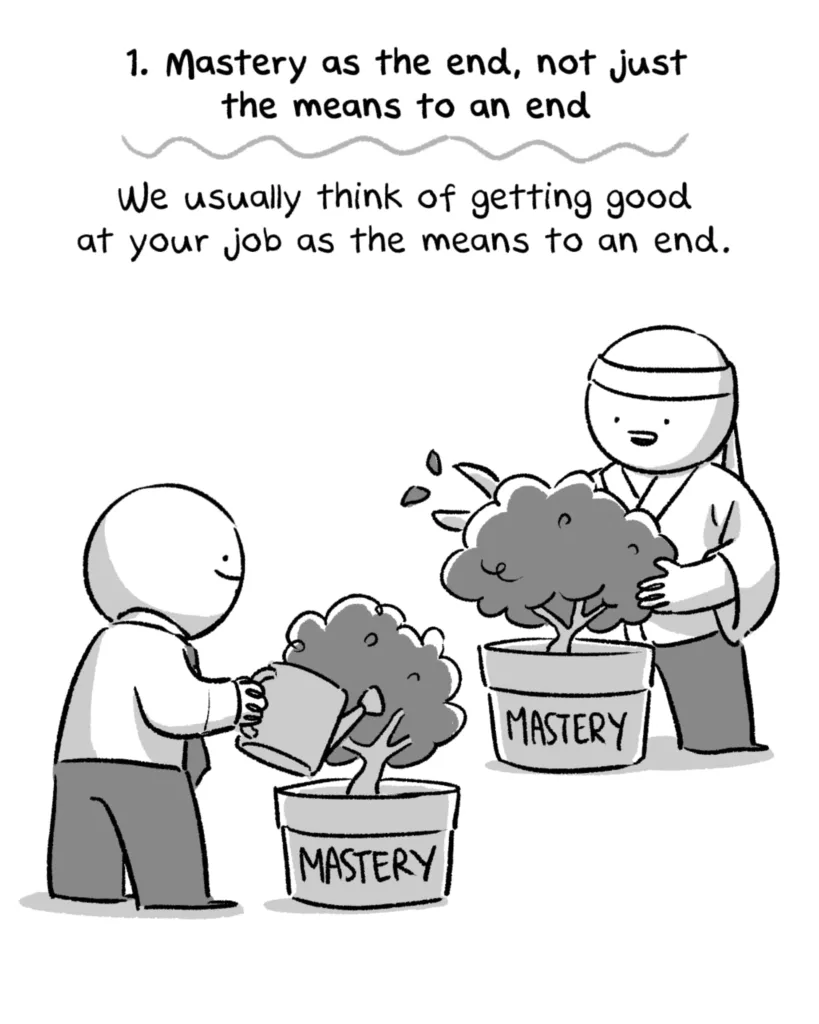
1. Mastery is the end, not just the means to an end. We usually think of getting good at our job as the means to an end.
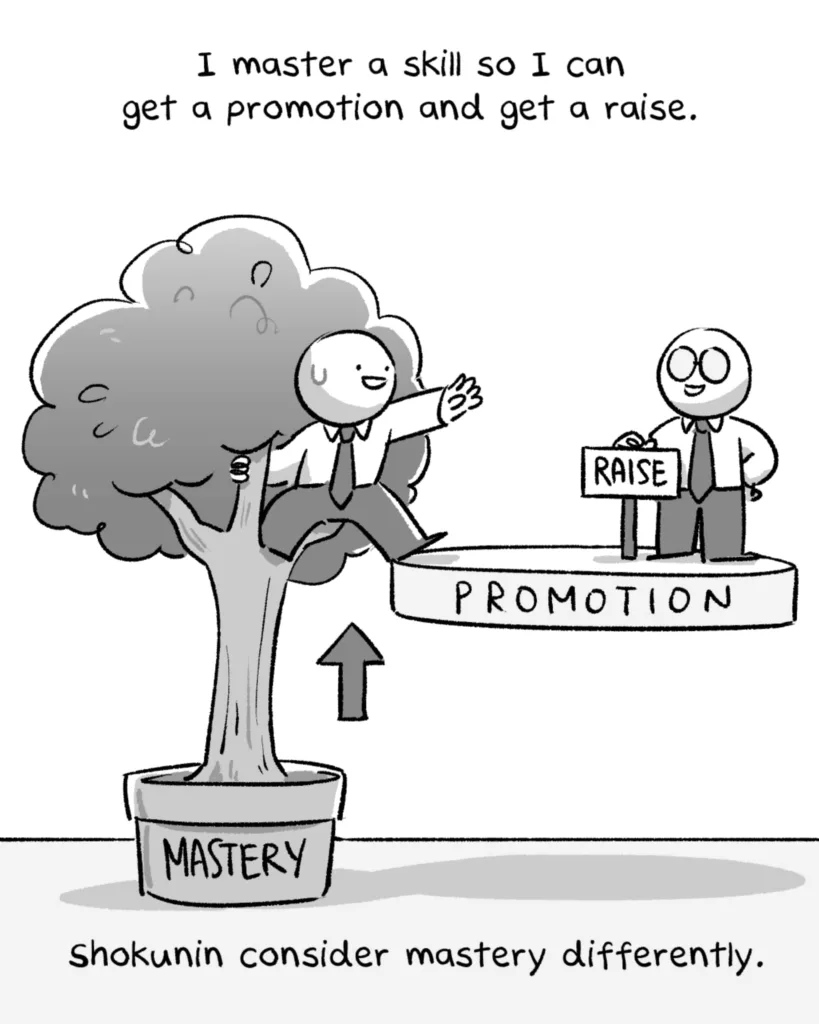
I master a skill so I can get a promotion and get a raise. Shokunin considers mastery differently.
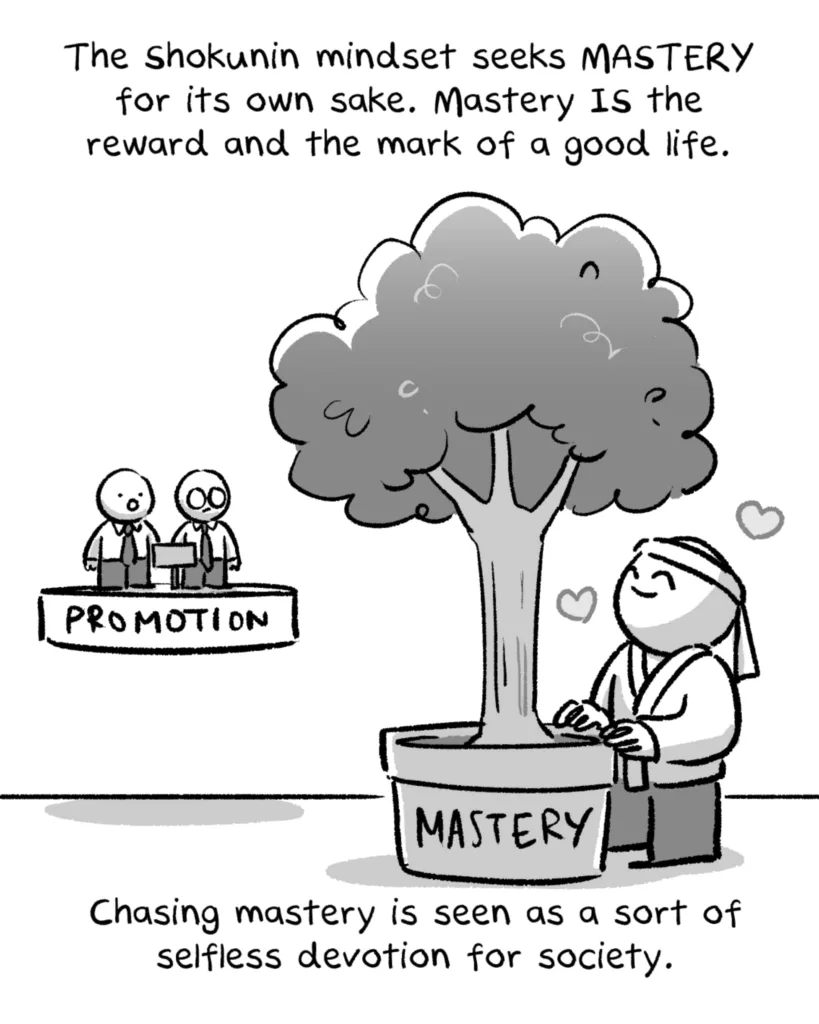
The shokunin mindset seeks MASTERY for its own sake. Mastery IS the reward and the mark of a good life. Chasing mastery is seen as a sort of selfless devotion to society.
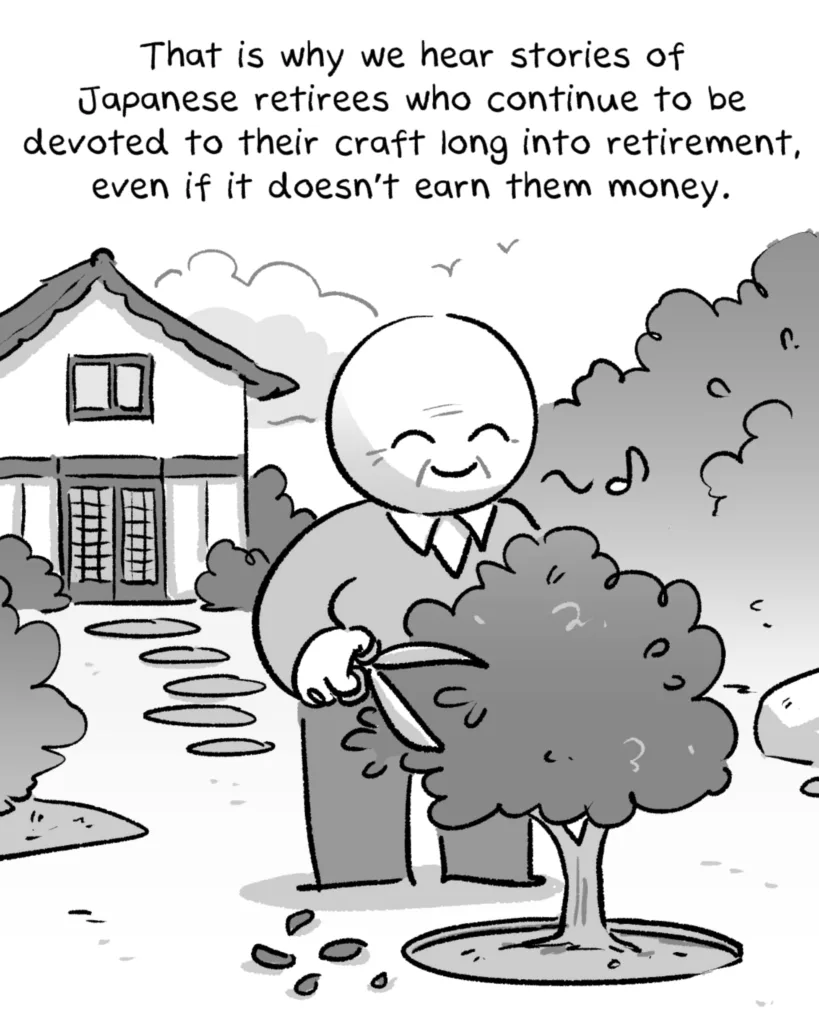
That is why we hear stories of Japanese retirees who continue to be devoted to their craft long into retirement, even if it doesn’t earn them money.
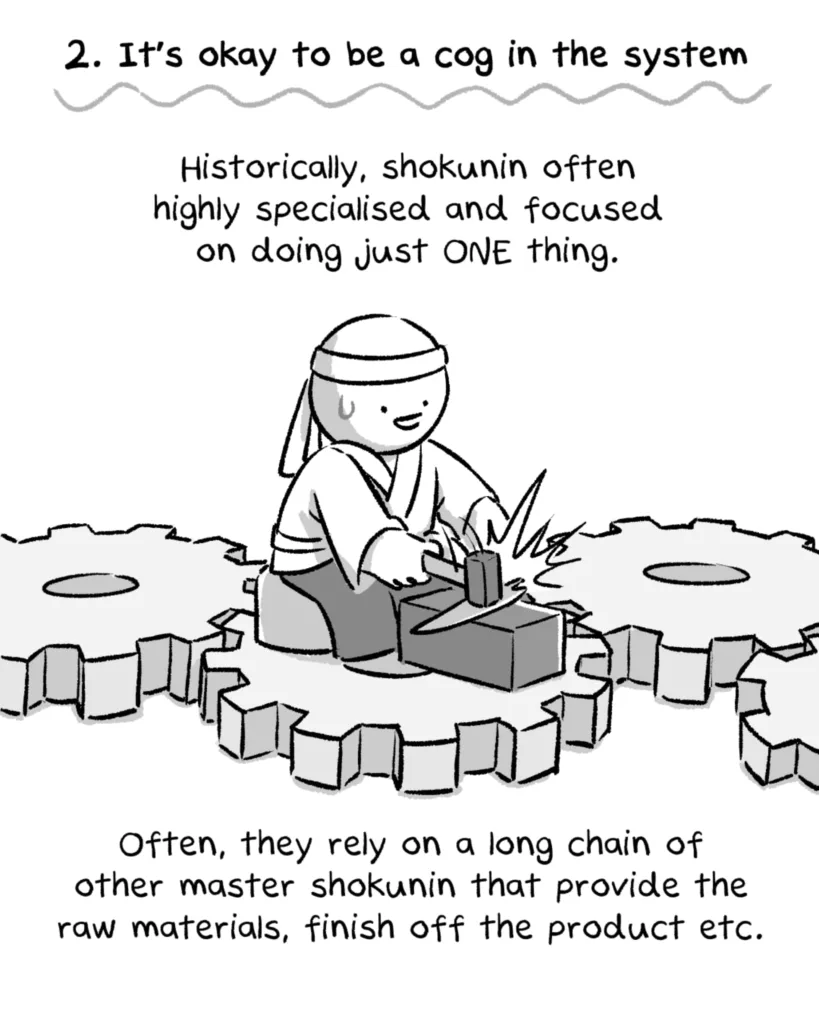
2. It’s okay to be a cog in the system. Historically, shokunin is often highly specialized and focused on doing just ONE thing. Often, they rely on a long chain of other master shokunin that provide the raw materials, finish off the product, etc.
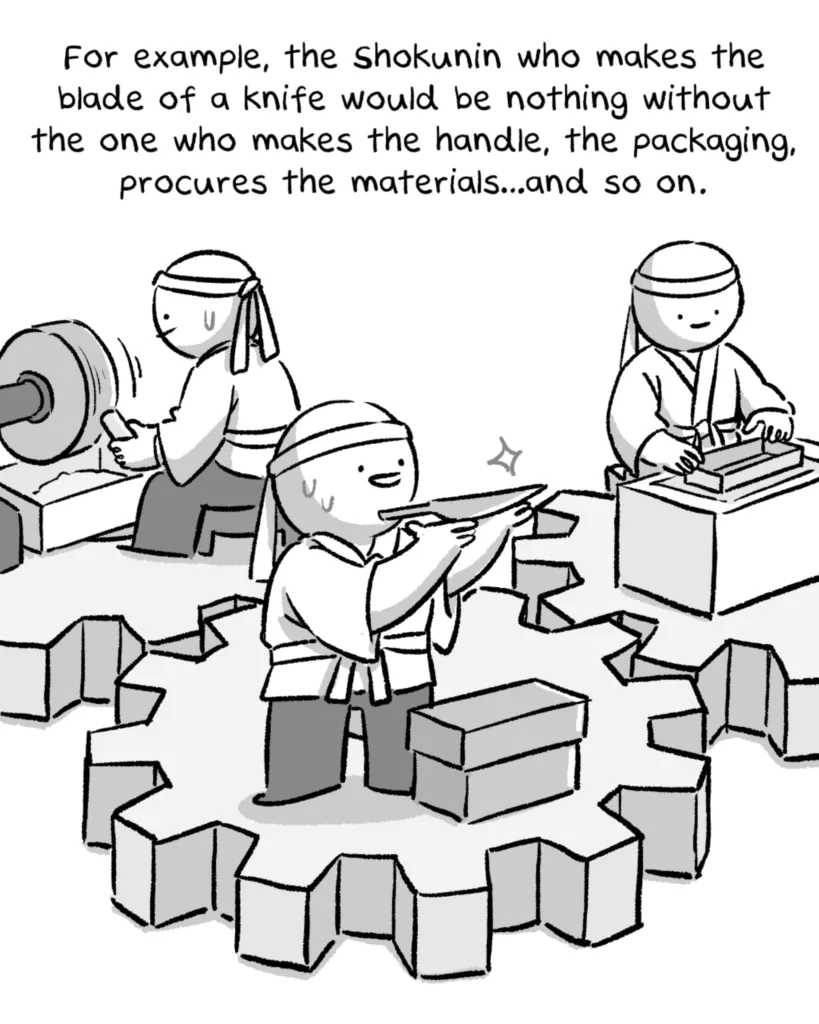
For example, the shokunin who makes the blade of a knife would be nothing without the one who makes the handle, the packaging, procures the materials…and so on.
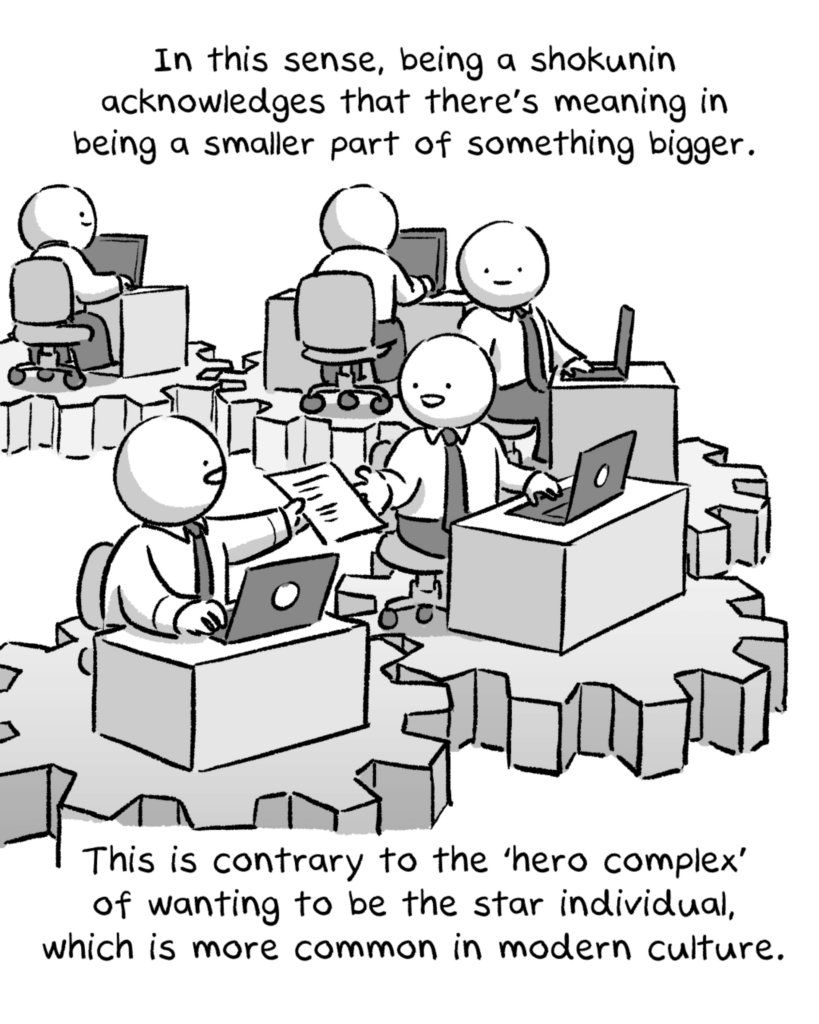
In this sense, being a shokunin acknowledges the meaning of being a smaller part of something bigger. This contradicts the ‘hero complex’ of wanting to be the star individual, which is more common in modern culture.
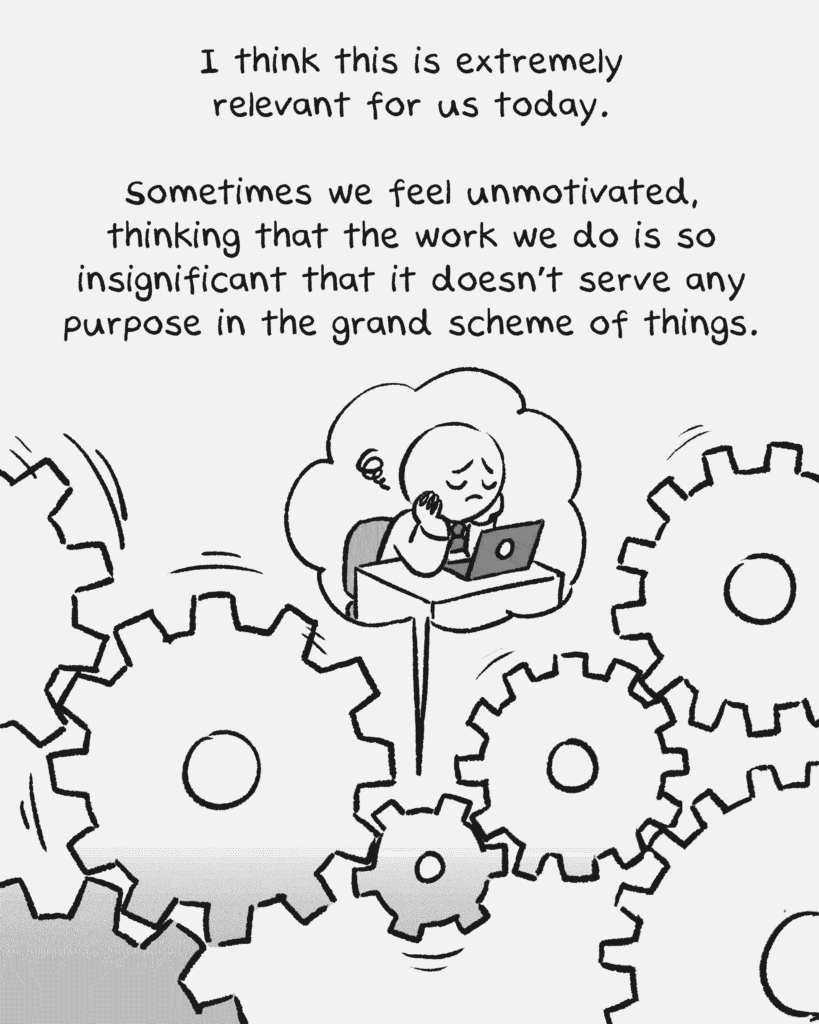
I think this is extremely relevant for us today. Sometimes, we feel unmotivated, thinking our work is so insignificant that it doesn’t serve any purpose in the grand scheme.
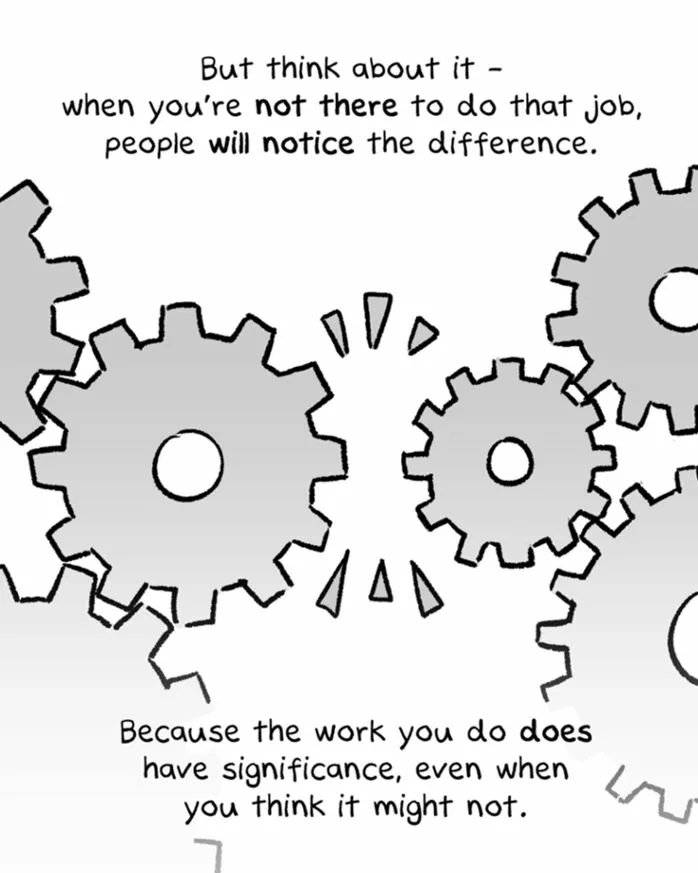
But think about it – when you’re not there to do that job, people will notice the difference. Because the work you do does have significance, even when you think it might not.
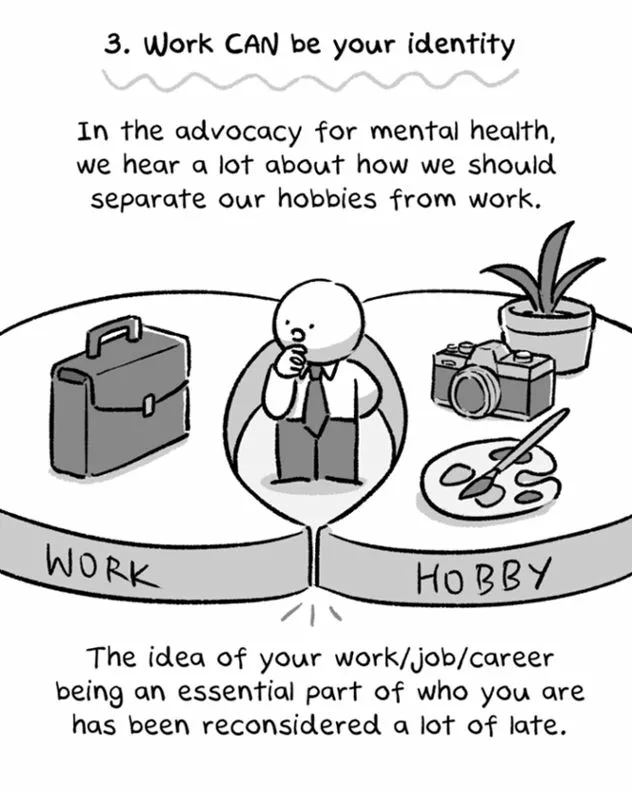
- Work CAN be your identity.
In the advocacy for mental health, we often hear about how we should separate our hobbies from work. The idea of your work/job/career being an essential part of who you are has been reconsidered recently.
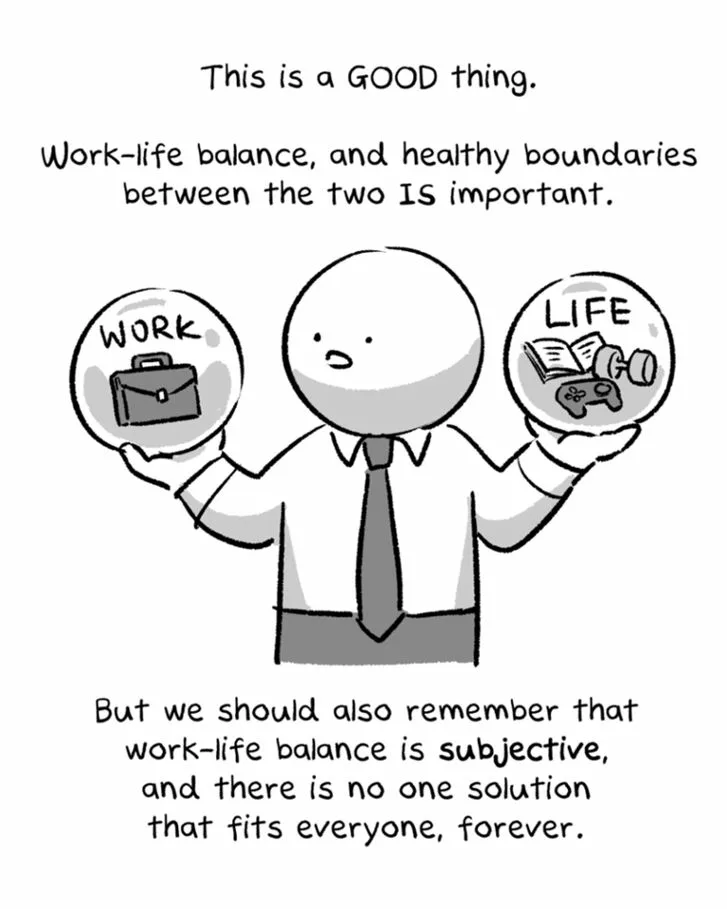
This is a GOOD thing.
Work-life harmony and healthy boundaries between the two are important. But we should also remember that work-life balance is subjective, and no one solution fits everyone forever.
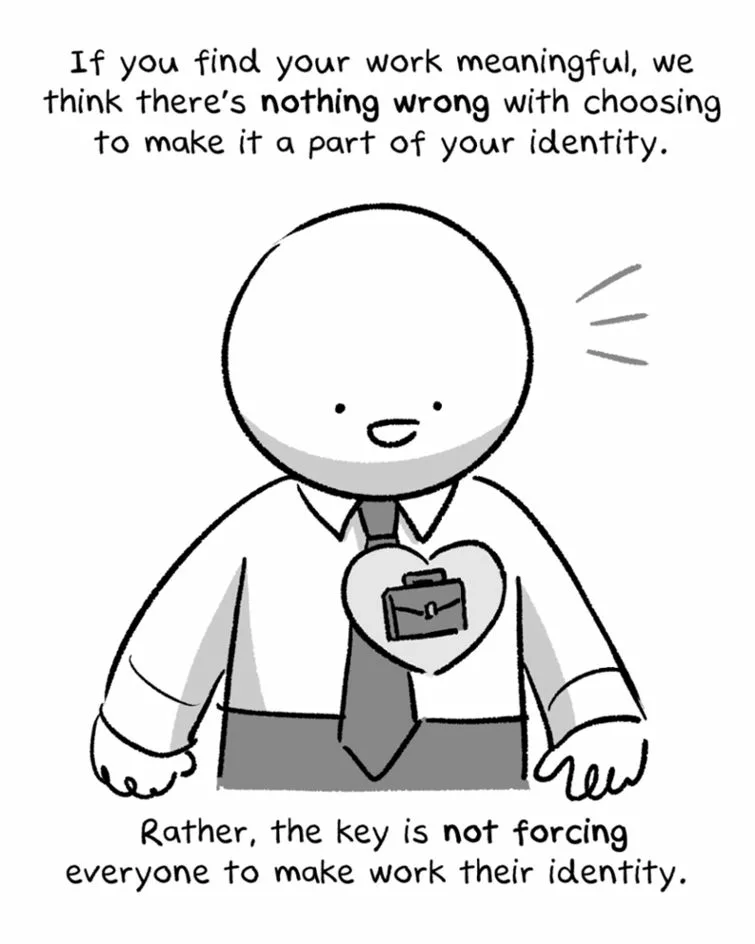
If you find your work meaningful, we think there’s nothing wrong with making it a part of your identity. Rather, the key is not forcing everyone to make work their identity
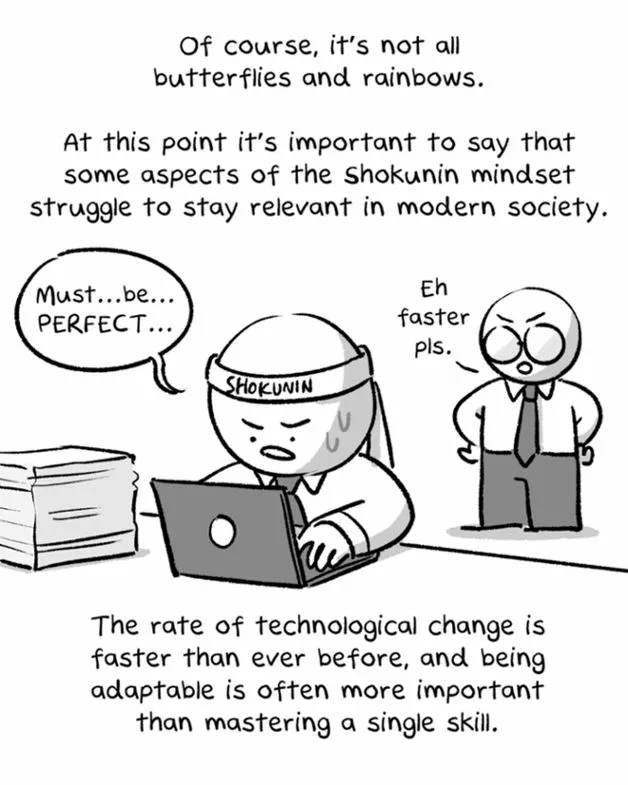
Of course, it’s not all butterflies and rainbows. At this point, it’s important to say that some aspects of the shokunin mindset struggle to stay relevant in modern society. The rate of technological change is faster than ever before, and being adaptable is often more important than mastering a single skill.
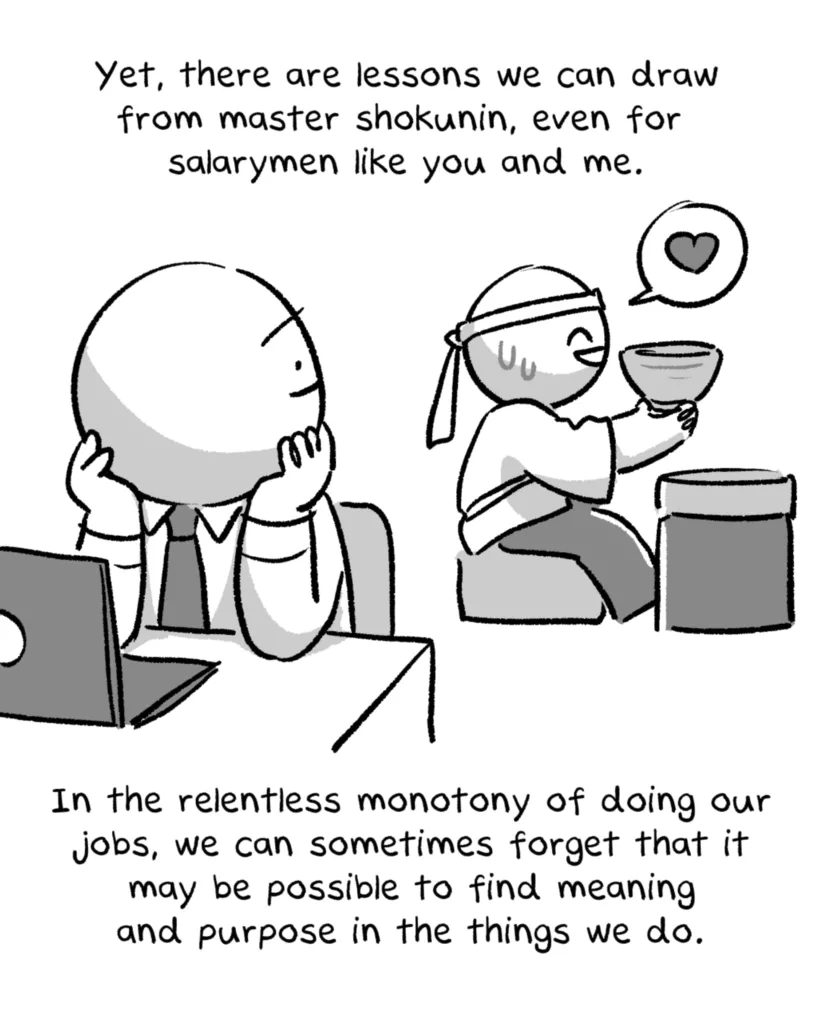
Yet, there are lessons we can draw from master shokunin, even for salarymen like you and me. In the relentless monotony of doing our jobs, we can sometimes forget that it may be possible to find meaning and purpose in our actions.
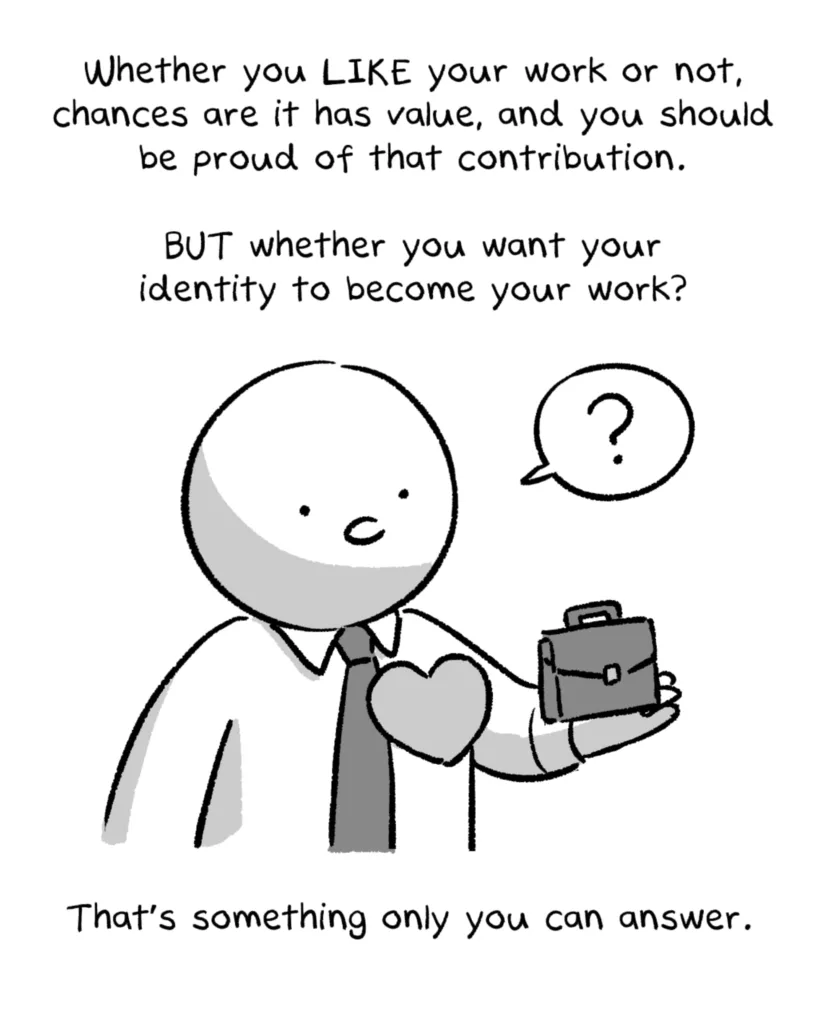
Whether you LIKE your work or not, chances are it has value, and you should be proud of that contribution. But whether you want your identity to become your work. That’s something only you can answer.
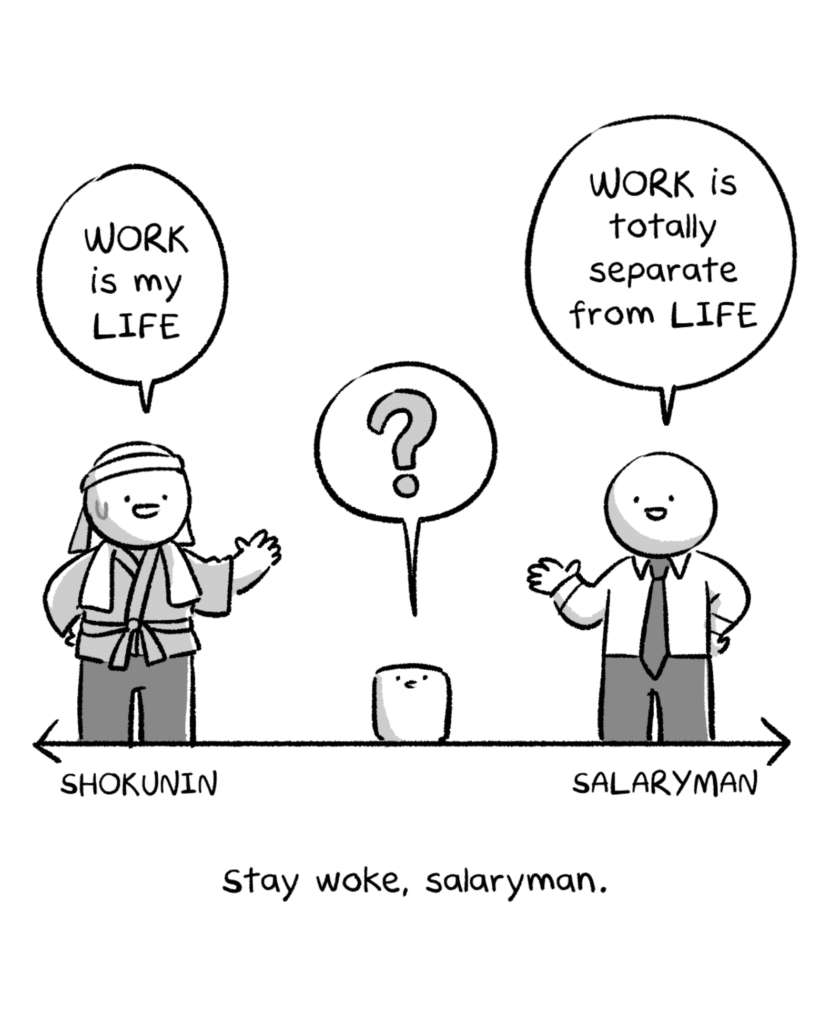
WORK is my LIFE. WORK is separate from LIFE






